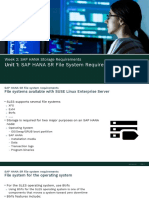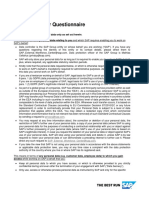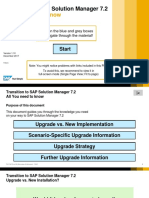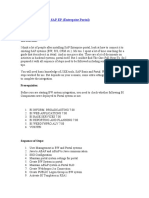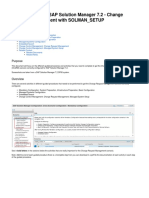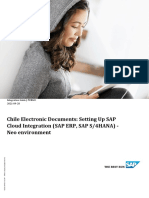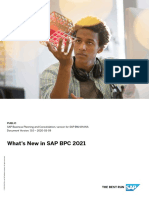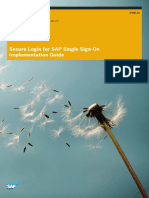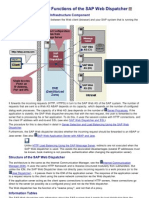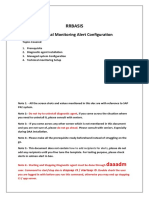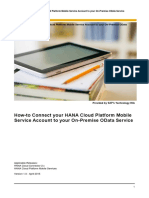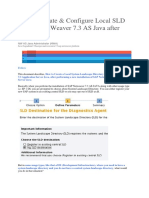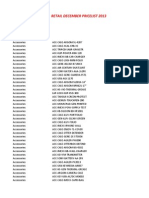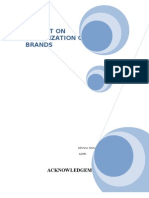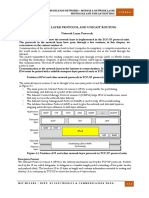0% found this document useful (0 votes)
40 views10 pagesDms Integration
This document provides a comprehensive guide for setting up and administering SAP Cloud ALM, including integration with the SAP Document Management Service (DMS). It outlines the necessary prerequisites, procedures for connecting to DMS, and the handling of repositories created during the integration process. Additionally, it covers troubleshooting and FAQs related to the setup and administration of SAP Cloud ALM.
Uploaded by
sdfsfdsCopyright
© © All Rights Reserved
We take content rights seriously. If you suspect this is your content, claim it here.
Available Formats
Download as DOCX, PDF, TXT or read online on Scribd
0% found this document useful (0 votes)
40 views10 pagesDms Integration
This document provides a comprehensive guide for setting up and administering SAP Cloud ALM, including integration with the SAP Document Management Service (DMS). It outlines the necessary prerequisites, procedures for connecting to DMS, and the handling of repositories created during the integration process. Additionally, it covers troubleshooting and FAQs related to the setup and administration of SAP Cloud ALM.
Uploaded by
sdfsfdsCopyright
© © All Rights Reserved
We take content rights seriously. If you suspect this is your content, claim it here.
Available Formats
Download as DOCX, PDF, TXT or read online on Scribd
/ 10






